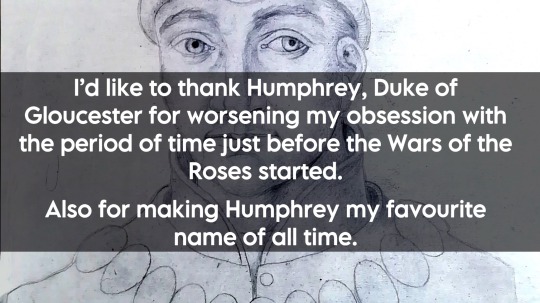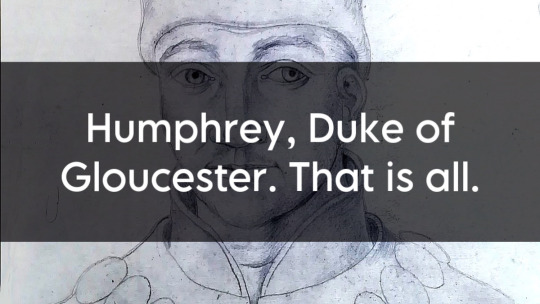#humphrey duke of gloucester
Text
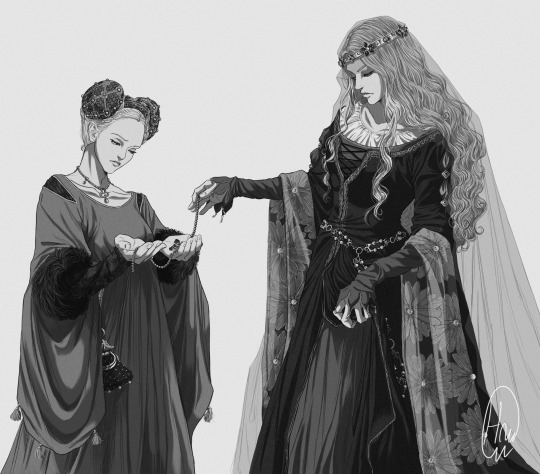
Book illustration - Anne & Cecily Neville.
There's not much difference between a woman and a caged bear cub. We are prisoners in our own marriage, Cecily.
#the wars of the roses#15th century#middle ages#medieval#medieval fashion#illustration#sketch#drawing#art#edward iv#elizabeth woodville#cecily neville#richard duke of york#anne countess of stafford#henry vi#humphrey duke of gloucester#john duke of bedford#catherine of valois#elizabeth of york#artists on tumblr#character design#english history#the white queen#the white princess#book writting#medieval costume#house of york#house of lancaster
96 notes
·
View notes
Text
The Ambition of Eleanor Cobham
One of the questions I have about Eleanor Cobham is just how much anxieties around her social mobility, her gender, class and sexuality, have impacted the way she was viewed and is now remembered. So Take, for instance, her ambition.
We know she was ambitious because, well, we know. Everyone says so, it must be true. But the idea of her ambition rests on two pieces of evidence. The first is her social mobility itself. That she went from damsel to concubine to wife and duchess. The second is her downfall, the accusations that she had employed witchcraft to bring about the king's death and ensure her rise to to queen.
The first seems to confirm the second, the second the first. But when we separate the two, when we don't automatically assume that Eleanor was ambitious, and look at each incident on their own, then they don't necessarily confirm anything.
Let's start with the witchcraft accusations. I could write thousands upon thousands of words about the accusations themselves so I'll try to be brief. The main accusation against Eleanor and her associates (Roger Bolingbroke, Thomas Southwell, John Hume and Margery Jourdemayne) was that, on Eleanor's instigation, Bolingbroke, with Southwell and Hume assisting, had drawn up Henry VI's nativity chart that predicted he would die soon, unless he managed to avert this future through prudence. They then publicised this prediction, with the intention being that the common people people to withdraw their love from him (apparently, being king was a bit like being Tinkerbelle - if people didn't believe in you, you ceased to exist). The indictments for Bolingbroke, Southwell and Hume suggest that they were imagined to have used demonic assistance to draw up the chart. It's not clear what role Margery Jourdemayne played in this plot.
The accusations against Eleanor also seem to have included love and fertility magic. Eleanor was accused of using love magic to induce Humphrey, Duke of Gloucester to marry her and the marriage was annulled as a result of this idea. It's possibly in this area, not in the necromancy and astrology, that Margery was involved.
The main motivation ascribed to Eleanor throughout is her ambition. Her only motivation mentioned by chroniclers is that she wanted to know to which estate she would come. Which means she wanted to know if she would become queen which means she wanted to become queen which means she wanted Henry VI to die. In short, she was imagined as desiring the death of Henry VI to ensure her rise to the top - and, retrospectively, her status-defying marriage was recast as one of coercion born from her ambition.
There is no real consensus between historians on Eleanor's guilt or innocence of these accusations. It's fairly common to find the idea that she was guilty of "no more than foolishness" or curiosity or fertility magic, and that the idea that the charges were exaggerated or politicised. But there some historians who think she was completely and utterly guilty, and there is no evidence for there being a conspiracy against Eleanor or Humphrey.* There is also an idea that Eleanor was entirely set up, though this is fairly rare to find from historians.
While we can't acquit Eleanor, we can't convict her. Which means there is reason to doubt the accusations against her are proof of her guilt and proof of her character. And even the accusations were true, that she wanted to know when Henry VI would die, her motivations may have been less two-dimensional and more complex than "ambition". Concerns about Henry's health, mental or physical, may have been behind Eleanor's alleged inquiry, as well as insecurity about her position should Henry die and Humphrey succeed him. We certainly can't take her admission of using fertility magic as "proof" of her ambition and treason, as some historians have done. Her society was deeply patriarchal and based on primogeniture, it would be natural for her own to have felt anxiety about her lack of children and try to remedy it. Not long after Humphrey's death, anxiety about the succession would become an open issue, publicly remarked upon, but it seems logical to imagine that this anxiety was present before Humphrey's death and before Eleanor's downfall. Henry VI was unmarried and childless, his heir was an ageing uncle who had no legitimate children. Even if it wasn't openly expressed, the wider ramification of their childlessness would have affected Eleanor. If she and Humphrey had a child, it would have relieved this anxiety. Yes, it would mean she might become the king's mother (assuming she survived the birth, assuming she outlived both Henry VI and Humphrey) but accusing her of callous ambition because she wanted to have a child in the middle of this anxiety seems a very narrow view.
I'd also add that while her admission of using fertility magic seems very reasonable, it may not have been true - she may have cracked under pressure and admitted to it in effort to stop the questioning. She may have attempted to acquit herself of the more serious charges by admitting to something lesser.
At any rate: we cannot take it as a given that the witchcraft accusations were true and we cannot take it as a given that they were proof of her ambition. What they might tell us, instead, that she was perceived in a way that made her vulnerable to such allegations. Whether that perception had any basis in reality is not known or recoverable. In other words, the idea that the accusations "prove" her ambition must remain doubtful.
To move onto the first piece of evidence, the idea that Eleanor married Humphrey out of ambition... this is even harder to be certain of.
That Eleanor made a status-defying match is clear. That she made a meteoric transformation from damsel to concubine to wife to duchess is undeniable. That this would arouse suspicions of ambition and greed - and of witchcraft - is also obvious. But does it actually mean Eleanor was ambitious? That she deliberately seduced Humphrey to rise herself?
It does appear that the idea of a high-status man being seduced, manipulated or bewitched by an ambitious woman of lower-status to fall in love with them was the standard explanation for these matches in the first place. Alice Perrers was accused in Parliament of bewitching Edward III, Katherine Swynford was figured as having bewitched John of Gaunt by chroniclers, Anne Boleyn was accused by her enemies of bewitching Henry VIII (though witchcraft was not a charge laid against her), while Elizabeth Woodville's marriage to Edward IV was sometimes accredited to sorcery performed by herself and her mother, Jacquetta of Luxembourg. All women were presented as ambitious in their witchery. Eleanor's alleged seduction and bewitchment of Humphrey thus fits into a pattern where the women of lower status were figured as overly ambitious and employing witchcraft to seduce a high-status man into loving and potentially marrying them. While most people accept that witchcraft and magic aren't real (or, while "real" to the people who use them, have no real power), these accusations become transformed into proof that these women were beguiling temptresses, raised to rise and/or driven by ambition or a desire for self-aggrandisement, that they used their sexual wiles to manipulate men into loving them.To put it another way: the woman was an ambitious witch-whore and the man her hapless victim, a sexual weakling.
Of course, it's possible that one or more of these women were really ambitious, that they did set out to seduce their lover. But we should be careful to accept the misogynist constructions of medieval and early modern chroniclers and commentators as factual evidence, particularly when we see this same idea presented over and over again.
It's also interesting to note how the idea of any of the women mentioned in the example as "ambitious" loses or gains currency depending on the view of the woman. For example, the idea of the ambitious Katherine Swynford only has currency in Ricardian/Yorkist circles where it is used to denigrate the Tudors' Beaufort heritage; she is more likely to be figured as a romantic heroine than an ambitious upstart. Similarly, the view of Elizabeth Woodville as an ambitious schemer tends to have greater currency amongst those Ricardians who figure her as Richard III's enemy and those who use her as a repository for the misdeeds of Edward IV, while those more sympathetic to her see the story as a misogynist smear. Similarly, Anne Boleyn might be a romantic heroine, victim or a cold-hearted schemer depending on where one's opinions on her lie. For Katherine, Elizabeth and Anne, their status-defying marriages can be construed as proof of romantic intentions. Katherine, in particular, is almost universally rendered a romantic heroine because of her transformation from governess to mistress to duchess.
Neither Eleanor nor Alice appear to have been read as sympathetically, perhaps because the nature of their downfalls seem to confirm the view of them as ambitious upstarts and/or because there is no popular counter-narrative seeking to redeem them. Or perhaps it is the obscurity of their lives outside the misogynist vitriol of chroniclers or the lack of a great dynasty descended from them that makes this negative view of them seem so tempting.
But to view a concubine or a woman marrying up as either a romantic heroine or an ambitious schemer places her in a binary and relegates her to two different stereotypes, both with misogynist elements (reducing a woman down to her romantic life is a form of misogyny). Recent scholarship on medieval mistresses have acknowledged the power dynamic between them and raised the possibility of coercion. In Women in the Medieval Court: Consorts and Concubines, Rebecca Holdorph notes that:
Given the power dynamic, many women and their families would have found it ill-advised or impossible to resist the advances of a nobleman or king. Some families probably encouraged women to acquiesce to a powerful man's demands, whether or not those demands were welcome.
In other words, a woman's ability to consent to the relationship may have been compromised; she may have faced pressure from her family, her lover or from both. I don't say this to mean "every mistress was coerced" but to raise the probability that some mistresses may have limited choices in their relationships. It is impossible to tell when this was the case with Eleanor or, indeed, any mistress; evidence expressing their perspectives on their lover or situation simply does not exist. Ruth Mazo Karras, in Unmarriages, raises the possibility that the union between a concubine and her elite lover could be arranged between the woman's family and her lover similar to how a marriage would be arranged. If so, Eleanor's relationship with Humphrey may have been begun through an agreement between he and her father, than through her own actions.
How Eleanor would explain how and why she entered a relationship with Humphrey and why she married him cannot be recovered. She may well have been ambitious and used her body to rise. She may have felt she had little to no choice, that pressure from her family or from Humphrey was too much to resist. She may have fallen in love with him or felt he was a kindred spirit - they seem to have shared intellectual interests. She may have been motivated by a combination of these reasons or more. In short, the idea that her relationship with Humphrey was borne of her own ambition is unknowable and cannot be "proof" of her character.
There is little evidence for Eleanor's ambition outside these things. In a letter petitioning Eleanor, she is referred to "the right high and full mighty princess and full gracious lady Duchess of Gloucester", but this seems like a more standard address of a high-ranking noblewoman than proof that Eleanor demanded to be referred to in such terms. It might tell us that this was how she was perceived as wanting to be addressed and seen as but it does not tell us if this was something she actually felt and believed.
While Humphrey's manor at Greenwich known as La Pleasaunce was a grand manor house and tower that emphasised his stature and was associated with Eleanor to some degree, it is also clear from Rachel Delman's discussion of Margaret of Anjou's building work at Pleasaunce that the residence as Margaret received it was not grand enough for a queen. Eleanor did not construct and build with Humphrey a home that overemphasised her status or revealed her ambition to be queen..
Basically, the main pieces for evidence for Eleanor's ambition are open to doubt. If Eleanor was innocent of treason and did not want Henry VI dead or if Eleanor married Humphrey for love or for some other motive, then the view of her ambition changes dramatically. In the end, the belief in her ambition becomes a product of circular logic. We know she was ambitious because she seduced Humphrey and attempted to murder Henry VI with magic to become queen. We know she did those things out of ambition because we know she was ambitious. We know she was ambitious because---
And the view of her ambition is a stereotype. Most people desire to improve their standing in life, few do it such two dimensional, caricaturing ways. The real Eleanor, even if she was driven by ambition, was probably more complicated than the cold-hearted, scheming seductress she is usually presented as. The (unevidenced) claim that she was "raised to rise" may well be a story of a girl and woman who was exploited and pimped out by her family seeking to find security. The view of her callously trying to determine when Henry VI would die may well have been a desperate move by a woman who felt threatened by her husband's enemies and seeking to gain a powerful position from which she, not they, would have power. This all builds off the idea that the accusations were true and that she was ambitious, clearly - but attempting to give her more complexity than "she's an evil ambitious witch". She may well have been moved by love and a desire for children, not ambition at all. The point is: she could have been anything.
*The idea that Eleanor was completely guilty and there is no evidence of a politicised attack has become quite a common pattern amongst historians writing revisionist histories of 15th century figures who are known as Humphrey's adversaries, namely the Beauforts and William de la Pole, Duke of Suffolk. Most also treat Humphrey very harshly, and in these cases it is clear that Eleanor is treated as no more than an extension of him.
32 notes
·
View notes
Note
Rank Henry IV's children in order of (your) interest, go
Henry V. Like I said, he's one of the few english monarchs who's managed to hold my attention for longer than 5 seconds. Congrats to Henry.
Home Fry. chaotic disaster with high intelligence, low wisdom and major dumb bitch energy. simultaneously a wife guy and a B+ husband. historians criticize him for being too argumentative and easily distracted but I don't understand what on earth they're complaining about because that's the most relatable thing ever. He was originally tied to Henry in my list but Humphrey would probably cry if Henry lost so 🤷🏻♀️
Philippa!
Thomas of Clarence
Blanche <3
John Duke of Bedford. I find him very boring sorry
#ask#*they're MARY DE BOHUN'S children actually#henry v#tagging them because they're the only ones I elaborated on#queue#humphrey duke of gloucester
7 notes
·
View notes
Text
humphrey duke of gloucester was the funniest bitch around. sorry cardinal beaufort (and his stans), he's young, flirty and thriving.
11 notes
·
View notes
Text
Happy birthday to God's special princess and the most interesting girl in the world:
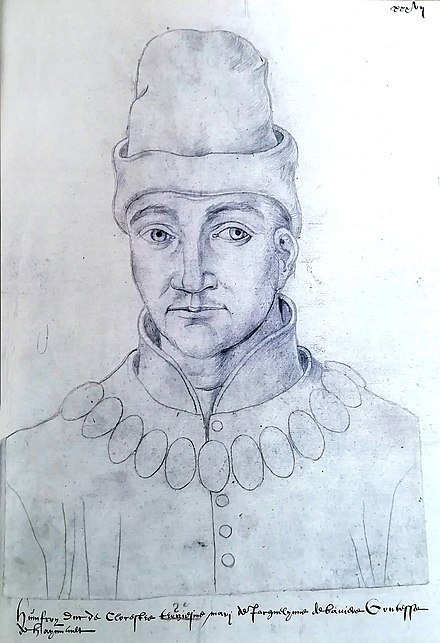
12 notes
·
View notes
Text
On one hand, John probably would have been a great king and could have potentially mitigated a lot of factors that lead to the war of the roses
On the other hand, John had no legitimate children, and no one, no one wanted King Humphrey I
#House of Lancaster#John Duke of Bedford#Humphrey Duke of Gloucester#John and Humphrey have a deathbed reconciliation... desperately trying to find literally anyone else who could take the throne
16 notes
·
View notes
Text
Started watching the Borgias and then I remembered speculations about Henry IV intending Humphrey to become a clergyman and now I am annoyed at the universe for not giving a timeline where Humphrey becomes the Pope. Humphrey's inherent Humphreyness and his active and disastrous love-life ( in comparison to the other Lancasterlings) would have made for a dramatic papacy.
#henry iv of england#henry bolingbroke#humphrey duke of gloucester#papacy#vatican#the borgias#the speculations are mostly due to the fact that humphrey was never assigned any military or administrative command by his dad#who instead preferred that he be educated#house of lancaster
5 notes
·
View notes
Text
So I figured out how to use the hunger games simulator thing and I wanted to put the people from the Wars of the Roses in.
I’d like to give credit to @malvoliowithin for this because I saw their post where they did this.
Of course these aren’t all from the same game, and not all of these figures are from Wars of the Roses but I wanted to add them in anyway.










Here’s some of the ones so far.
#the wars of the roses#wars of the roses#henry vi#henry v#humphrey duke of gloucester#margaret of anjou#Edward V#edward of lancaster
4 notes
·
View notes
Text
Eleanor Cobham has always got what she wanted; a new dress, a place at court, somebody else's husband. But not now. In her desperation to conceive an heir, she turns to witchcraft and is soon embroiled in its throes. As she comes face to face with the dangerous side of power, will she learn if she can control the turn of fortune's wheel?
This was such an interesting & funny listen! Loved how the story was told & the tone/voice of the narrator (a.k.a. Eleanor). Cannot recommend this enough!
#british royal family#eleanor cobham#eleanor duchess of gloucester#humphrey duke of gloucester#king henry vi#spotify#saga.txt
3 notes
·
View notes
Text
Not sure which Humphrey/Eleanor dynamic I would prefer:
A) Eleanor as Humphrey's voice of reason
Or
B) two idiots one braincell
Option A has extra tragic irony, BUT does play into the Women Are Wiser stereotype. Option B has Birds of a feather vibes which I love.
10 notes
·
View notes
Text
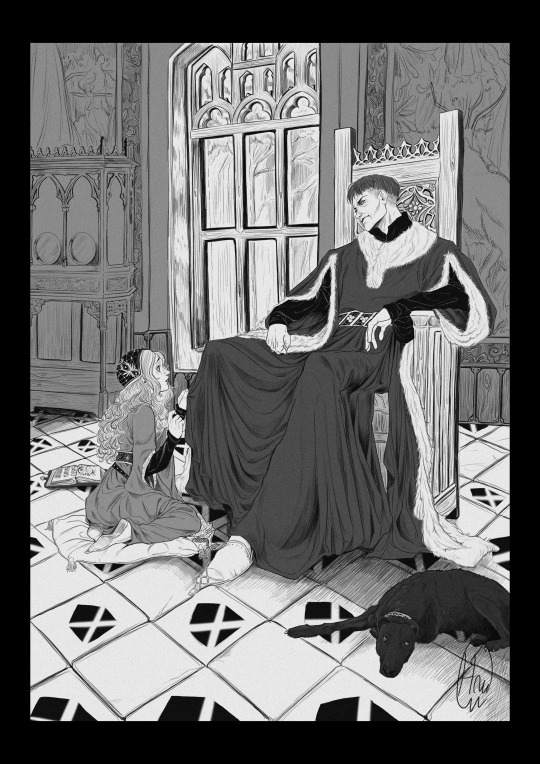
Cecily Neville and her father, Ralph.
That's it. That's all the description I can do before I pass out.
#the wars of the roses#15th century#art#character design#sketch#drawing#cecily neville#ralph neville earl of westmorland#medieval#historical art#historical fiction#digital artwork#richard duke of york#hundred years war#humphrey duke of gloucester#john duke of bedford#neville#joan beaufort#father and daughter#artist on tumblr#edward iv#elizabeth woodville#oc artist#middle ages#british history#elizabeth of york#nobility#isabel neville#richard iii#henry vi
65 notes
·
View notes
Text

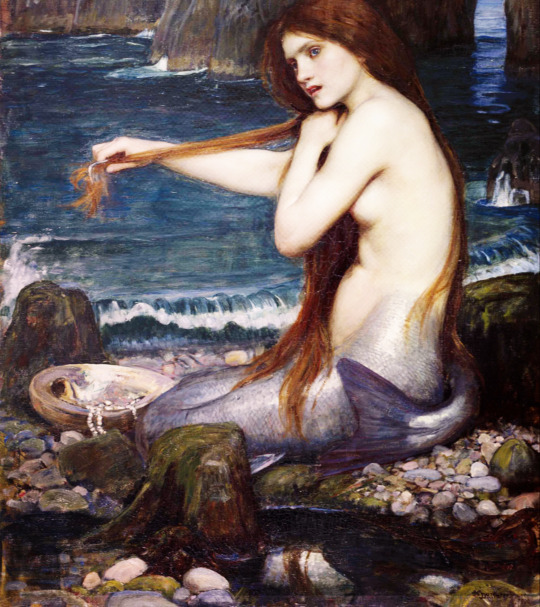



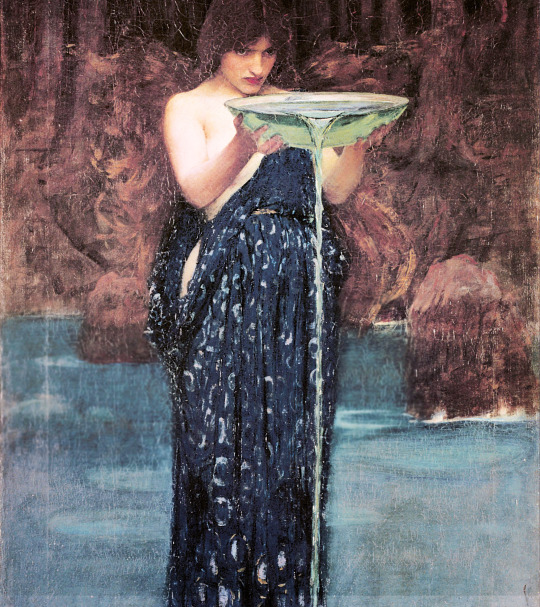

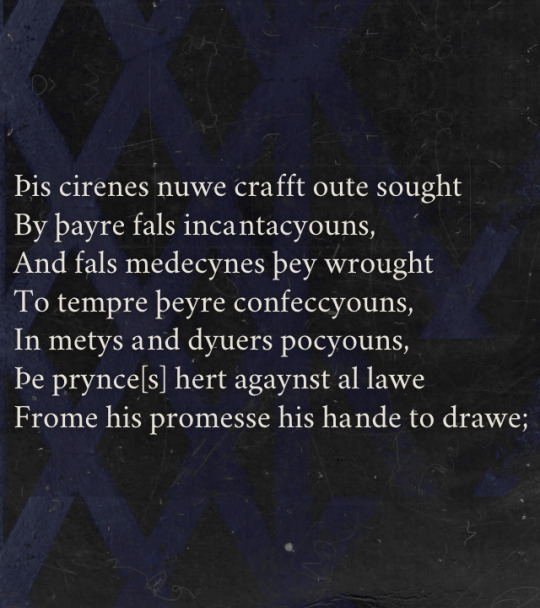

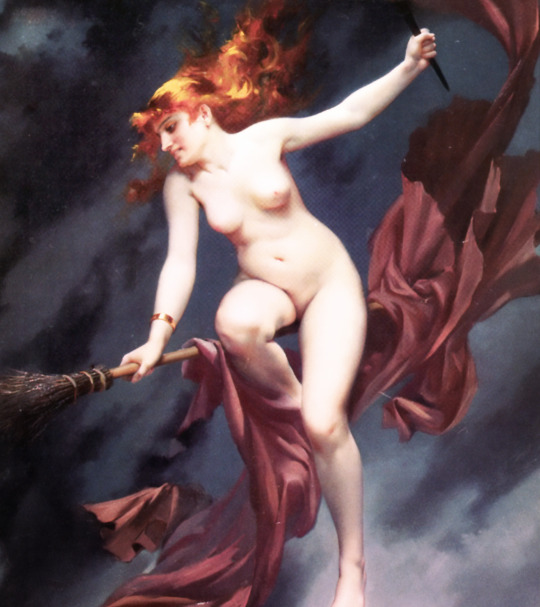
A Complaint for My Lady of Gloucester and Holland
Although the “Complaint” is focused on Jacqueline and includes a potentially subversive chorus of grieving women in support of her, Eleanor makes an oblique and threatening appearance about halfway through […] This characterization of Eleanor persists for several more stanzas, referring to “fals Circes,” and “cirens,” whose “fals incantacyouns” and “fals medecynes … / þe prynces hert agaynst al lawe / Frome his promesse his hande to drawe.” Although Eleanor was only publicly accused of witchcraft in 1441, these references in a poem generally dated to 1428 suggest that her reputation preceded that. Eleanor’s position at the heart of an adulterous (and possibly bigamous) love triangle also linked her—as it linked legendary adulteresses like Guenevere and Iseult—to witchcraft, in sharp contrast to Jacqueline, the “goodely fayre pryncesse” for whom “yong and olde [cry] in oone.” A transgression in one realm, one might say, opens a door to transgressions elsewhere. Striking too is the nature of the enchantment, that of the “chaunteresse” or “Ciren.” Although the references to mermaids and “courage serpentyne” may also recall the half-snake figure of Mélusine, the fairy ancestress of the counts of Lusignan, the repetition of “songe” and constant emphasis on voice locate Eleanor’s power elsewhere, a theme to which later depictions of her will return.
—Kavita Mudan Finn, “Tragedy, Transgression, and Women’s Voices: The cases of Margaret of Anjou and Eleanor Cobham,” Viator 47.2 (2016).
John William Waterhouse (1900), A Mermaid | John Collier (1886), Lilith With A Snake | John William Waterhouse (1892), Circe Invidiosa | Herbert James Draper (1909), Ulysses and the Sirens | Luis Ricardo Falero (1880), The Witches Sabbith
#eleanor cobham#historian: kavita mudan finn#edits#historyedit#jacqueline of hainault#humphrey duke of gloucester#medieval literature
33 notes
·
View notes
Text
@ Humphrey of Gloucester everything about you is interesting except for your name.
#I hate the name Humphrey even more than Thomas if that's possible#it irritates me every time I hear it and every time I see it on paper#@ Henry IV why did you name your son this? This is the medieval equivalent to naming your kid 'Goosebump'#Why couldn't he have been named Edmund or Edward or Jasper instead? I love Edmund and Edward and Jasper#Instead he's a 'Humphrey'#(this is a drunken shitpost don't take it seriously lots of love to all the Humphreys of the world)#humphrey duke of gloucester
12 notes
·
View notes
Text
I don’t care if it’s medically impossible, I need the Lancaster bros to tower over their father.
Like so:
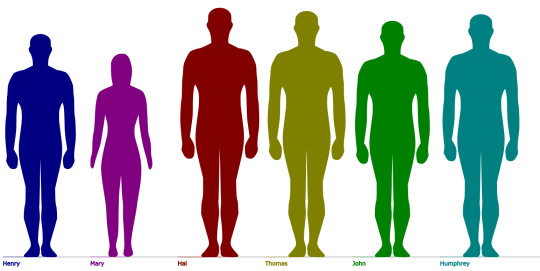
#henry iv#mary de bohun#henry v#thomas duke of clarence#john duke of bedford#humphrey duke of gloucester#(john is the shortest of the brothers which is enough to give him a complex)#lancasterlings#text posts
29 notes
·
View notes
